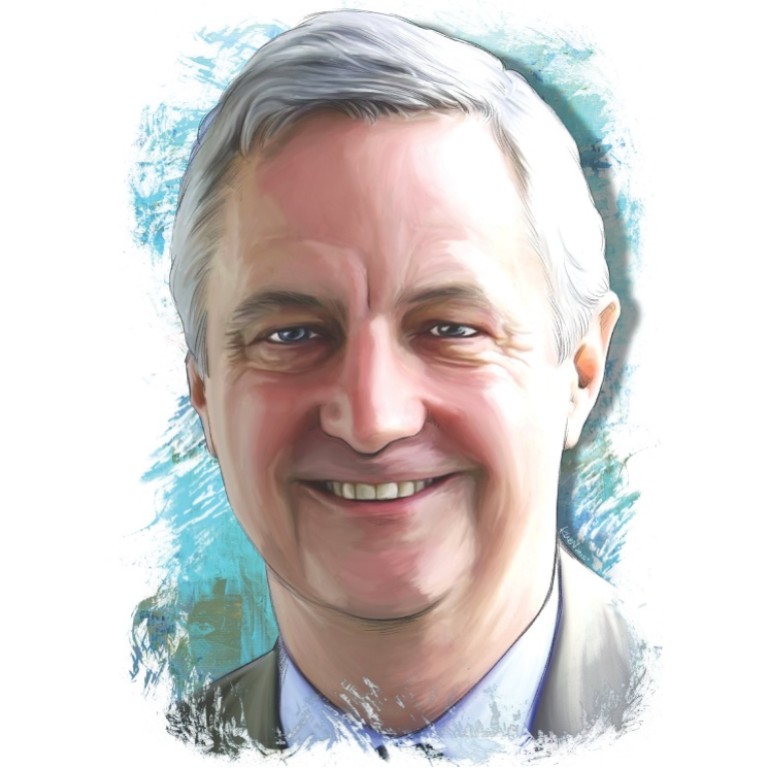
Esteemed China watcher delivers tough love to Beijing
An esteemed China watcher, even in Beijing's eyes, has delivered a grim prognosis for the leadership, and peers say Xi Jinping should take heed
Among China watchers, David Shambaugh has a reputation for delivering sober-minded observations, deeply grounded in fact.
He steers equally clear of the alarmist calls warning that a more powerful China poses a threat to everything except itself, and the cheerleading that argues the unleashed economic might of 1.3 billion people will become the 21st century's saviour. That's why Beijing deems Shambaugh one of the most influential China experts in the United States.
So when the George Washington University professor declared this month the "endgame of communist rule has begun", academics and policymakers across the spectrum listened.
In an op-ed two weeks ago in with the headline "The Coming Chinese Crack-up", Shambaugh labelled the nation's political system "badly broken".
He wrote that the leadership was well aware of this and, by cracking down on dissent and corruption, President Xi Jinping hoped to avoid the dissolution of the Communist Party. But Xi's "despotism is severely stressing China's system and society - and bringing it closer to a breaking point", he wrote. The demise was likely to "be protracted, messy and violent", and Xi could be deposed in a power struggle or coup, he argued.
It was a rhetorical shot that would have been dismissed as overreach had it come from an analyst any less circumspect than Shambaugh. "When he comes up with a prognosis of the [party's] 'crack-up', people pay attention," said Dali Yang, faculty director of the University of Chicago's Centre in Beijing.
Kerry Brown, the director of the China Studies Centre at the University of Sydney, agreed. "Shambaugh is a widely respected and deeply experienced expert on China, and so his views deserve to be taken very seriously," Brown said.
Shambaugh was previously more optimistic about China. Seven years ago, in his highly regarded book , he highlighted the party's potential to overcome or contain its problems, such as corruption and eroded authority, through learning and adaptability.

But in a interview with on March 15, Shambaugh explained why his views had shifted. The present government had turned towards harsh repression and abandoned the proactive political reforms endorsed by former president Jiang Zemin and engineered by his close associate and former vice-president Zeng Qinghong .
Yang said it was disappointing for some observers, including Shambaugh, to see Xi and the other key leaders protecting their agenda by adopting harsh tactics such as silencing critics.
According to Brown, Shambaugh views Xi's strategy of trying to forge political loyalty among the party elite, introduce more discipline into the administration, and make governance an ally of efficiency as "evidently one full of risks, and is at a stage where it has done some of the hard work, but has yet to really deliver tangible outcomes". "In this context, you could say that David's article is primarily an expression of deep frustration," Brown said.
Steve Tsang, dean of the University of Nottingham's school of contemporary Chinese studies, said Shambaugh was correct in his assessment. Xi was pushing very hard with his party rectification campaign, which had already caused a backlash among cadres. "Shambaugh is right in implying that Xi's rule has now entered a stage when the risk of things going wrong is higher and higher, with the end result not being certain," Tsang said.
Analysts said Shambaugh made a more compelling case about the implications of economic failure within China. Tsang said that if the economic slowdown was deep and long, the consensus behind Xi's policies was likely to break down. Differences over how best to manage the economy could potentially split the leadership. "If that should come to pass, the capacity of the [party] to stay the course as it managed post-1992 is open to question," Tsang said.
China's economy, the world's second largest, expanded 7.4 per cent last year - the slowest pace in nearly a quarter of a century. As he announced a 7 per cent growth target for this year, the smallest expansion since 1999, Premier Li Keqiang acknowledged formidable challenges still lay ahead.
But Zhengxu Wang, a specialist in Chinese politics at the University of Nottingham, said the threats posed to the nation by even the biggest challenges were different from a collapse of governance.
Xiaoyu Pu, a professor of political science at the University of Nevada, Reno, said responses to Shambaugh's article should focus less on his prediction and more on his discussion about political reform. In the article, Shambaugh argued that China could only become an innovative society and a knowledge economy if it relaxed its "draconian" political controls. "Even Shambaugh admits that prediction is risky. Elsewhere, I argue that Beijing should wisely view Shambaugh's analysis not as yet another American conspiracy, but as 'good and bitter medicine' for China's future," Pu said.
Brown said the leadership "should, if they read his article, at least interpret it as a deeply informed observer and one who once was highly supportive of the party's attempts at internal reform, feeling concerned about their strategy and their communication of this."

